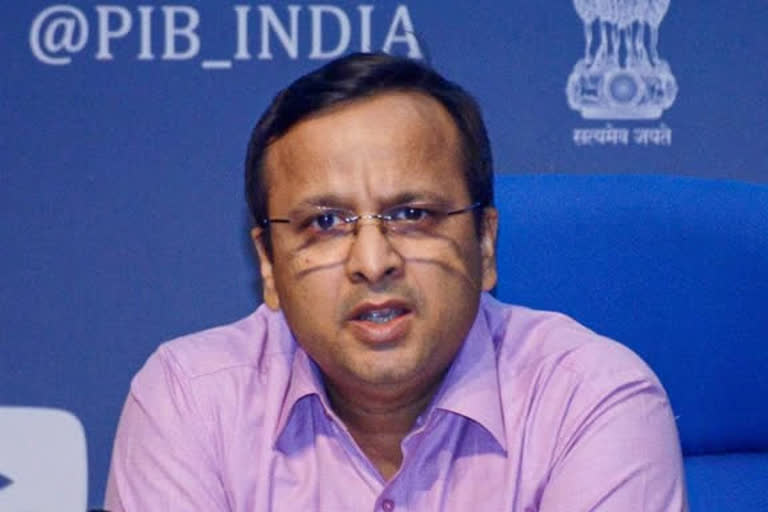New Delhi: While India has been grappling with the Covid-19 pandemic, the Centre on Tuesday has expressed major concern over vector-borne diseases such as malaria, dengue, chikungunya as well as chances of food, water-borne diseases and other skin infections.
“We have to be extra cautious. There is a need for extra precautions to prevent co-infection in the monsoon season…These infections may add severity to the already infected person with Covid-19,” said Lav Agarwal, Joint Secretary, Health Ministry.
Stating that this poses challenges in clinical and laboratory diagnosis of Covid, Agarwal said, “it may also affect clinical management and patient outcomes. There is a greater risk of diseases like dengue, malaria, seasonal influenza, leptospirosis, chikungunya, enteric fever, etc. coexisting in Covid cases.”
Ironically, while the country has been witnessing more and more relaxations from Covid-19 restrictions, many districts have reported an increasing trend in daily new cases. In the past few weeks, there has been a slowdown in the rate of decline of average daily Covid cases, which is a cause of concern.
As many as 22 districts from seven States have been reporting an increasing trend in daily new cases during the last four weeks. The States include Kerala, Manipur, Meghalaya, Arunachal Pradesh, Maharashtra, Assam and Tripura. He said that 54 districts from 12 states have been reporting more than 10 per cent positivity for the week ending July 26.
Agarwal, however, said that the daily new cases continue to show a decline with less than 30,000 cases being reported from across the country in the last 24 hours. “In last two months, India has also witnessed a reduction in terms of 100 daily new cases being reported from 317 districts,” he said. In the last week, India’s cumulative recovery rate also witnessed an uptick to 97.4 per cent. “India’s average daily Covid-19 test at present is 15,82,033 and weekly positivity rate is 2.1 per cent,” added Agarwal.
Meanwhile, Dr VK Paul, chairperson of the national task force on Covid-19 said that the decreasing number of Covid cases cannot be taken for granted. “The second wave is still not over. We have seen signs of concern in many states. In fact, several countries like the United States, France, Malaysia, and Thailand have started witnessing a fresh peak in Covid cases. We have to be extra vigilant,” said Dr Paul. He also emphasized consistency in vaccination drives. “Our vaccine is improving day by day. We have the visibility of 15 crore doses daily,” said Dr Paul. Till date, India inoculated 44.19 doses from all categories of people.
Referring to the vaccine effectiveness over the Delta plus variant, Dr Paul said that the scientific data analysis process is still on. “But we can assure you that our existing vaccines work well against the present variants,” said Dr Paul. Referring to a study compiled by Armed Forces Medical College on vaccine effectiveness, Dr Paul said that there was a 93 per cent reduction in infection amongst immunised people.“The study was done on Covishield. It was also noted to have a 98 per cent reduction in mortality rate among vaccinated people,” Dr Paul said.
Also read: Govt trashes reports on missing target of administering 50 crore Covid vaccine doses by July-end



